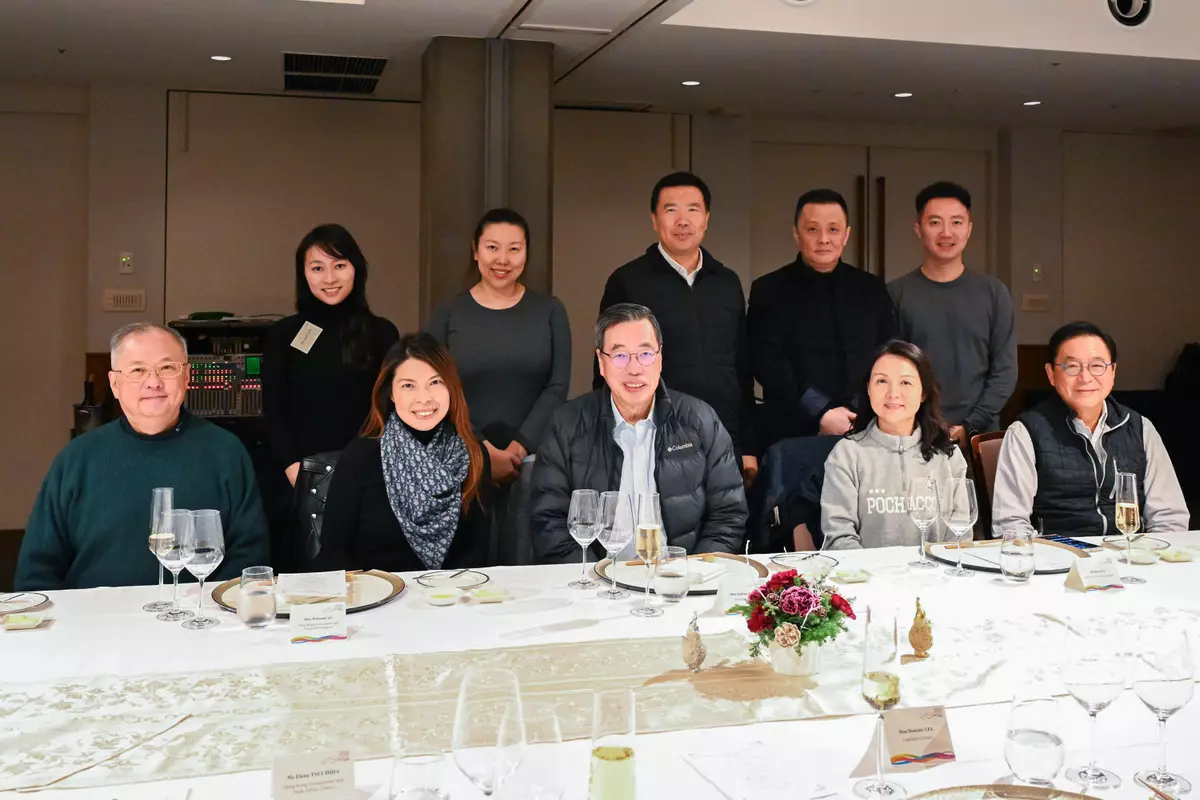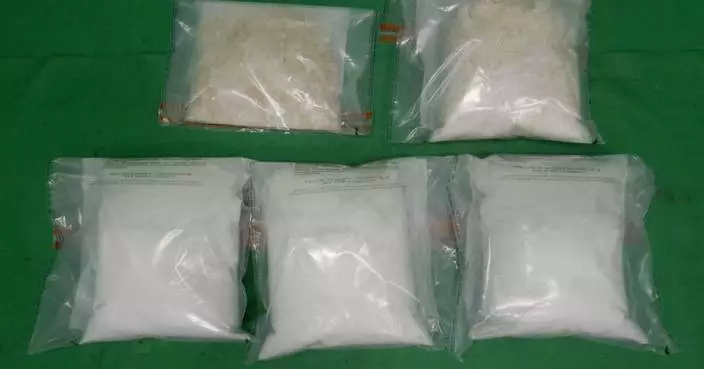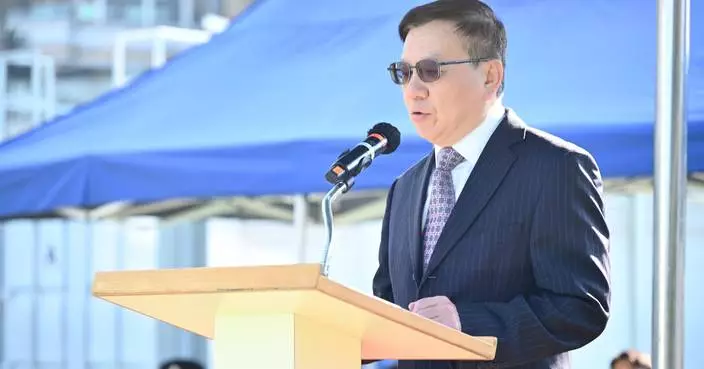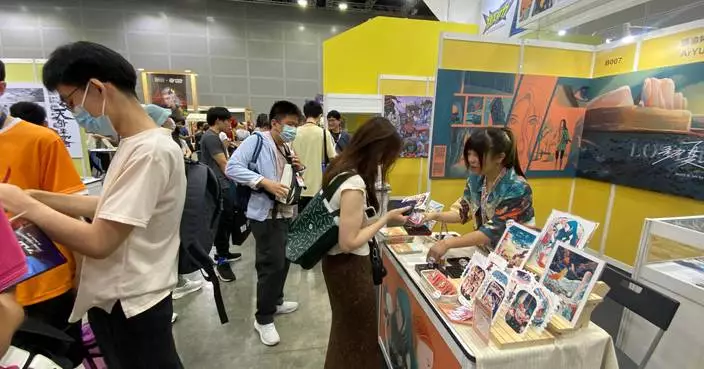CE's speech in delivering "The Chief Executive's 2024 Policy Address" to LegCo (3)
III.Consolidate and Enhance Our Status as an International Financial, Shipping and Trade Centre
29. The development of international financial, shipping and trading centres are closely intertwined. Besides expanding and strengthening our existing businesses, we will also explore new growth areas, specifically by creating a commodity trading ecosystem to attract relevant enterprises to establish presence in Hong Kong, turning our city into an operation centre for international commodity trading, storage and delivery, shipping and logistics, risk management, and more. This will help develop the markets in international gold, non‑ferrous metal, green transportation, and others, further promoting the integrated development of Hong Kong as an international financial, shipping and trade centre.
30. Hong Kong ranks among the world's largest import and export markets for gold by volume. The current complexity in geopolitics underscores our city's edge in security and stability, and hence an attractive location for investors for gold storage, spurring relevant activities such as gold trading, settlement, and delivery. We will capitalise on our strengths as an international financial centre to build Hong Kong into an international gold trading centre.
31. The Government will facilitate an international commodity exchange to set up accredited warehouses in Hong Kong. We will also introduce measures such as a preferential tax regime to attract enterprises to expand their business in Hong Kong, and to increase storage and trade volume of commodities.
32. Green shipping and aviation is a global trend. The Government will nurture industrial development of sustainable aviation fuel and green maritime fuel, and establish a fuel bunkering centre, leveraging the development opportunities in finance, trading and maritime sectors stemming from new energy.
(A) International Financial Centre
33. Hong Kong is an international financial centre, ranking third globally and first in investment environment. The Government will continue with reforms to reinforce and enhance our status as an international financial centre.
Deepen Mutual Market Access and Enrich Offshore Renminbi Business
34. We will continue to enhance the mutual market access regime and reinforce our status as the world's largest offshore Renminbi (RMB) business hub, contributing to the internationalisation of RMB. Key measures include continuously improving our infrastructure and upgrading the Central Moneymarkets Unit to facilitate the settlement of various assets in different currencies by international investors. We will also develop the fixed income market infrastructure by, for instance, setting up a central clearing system for RMB‑denominated bond repurchase (repo) transactions, making RMB sovereign bonds issued in Hong Kong a more popular choice of collateral in offshore markets. We will look to enhance the Cross‑boundary Wealth Management Connect Scheme as well.
35. We will also strive to bolster offshore RMB liquidity and make good use of the currency swap agreement between the HKSAR and our country, enabling the Hong Kong Monetary Authority (HKMA) to better support Hong Kong's economic and trade development; expand the night‑time, cross‑boundary service capability of Hong Kong's RMB Real Time Gross Settlement System to facilitate global settlement in offshore RMB markets; and explore the provision of more diversified channels for obtaining offshore RMB financing.
36. We will provide more RMB‑denominated investment products –
(i) the Hong Kong Exchanges and Clearing Limited (HKEX) to encourage more listed companies to have shares listed in the RMB stock trading counter, and expand the scope of RMB equities;
(ii) to increase issuance of RMB bonds and support issuance of more green and sustainable offshore RMB bonds in Hong Kong;
(iii) to seek support from the Ministry of Finance for boosting the size and frequency of issuing RMB sovereign bonds, and launching offshore RMB sovereign bond futures as soon as possible, in Hong Kong; and
(iv) to actively liaise with the Mainland authorities to expand the Bond Connect (Southbound Trading) as appropriate, including expanding the scope of eligible Mainland investors to non‑bank financial institutions such as securities firms and insurance companies; and enriching liquidity management tools that facilitate offshore investors' investment in onshore bonds by actively exploring and introducing, at appropriate juncture, various bond repo and collateral products and arrangements using onshore RMB bonds.
Further Enhance Our Status as an International Risk Management Centre
37. Hong Kong has the highest concentration of insurance companies and the highest insurance density in Asia. To further strengthen Hong Kong's position as a global risk management centre, the Insurance Authority will initiate a review next year. We will examine capital requirements for infrastructure investment, enriching insurance companies' asset allocation for risk diversification and driving investment in infrastructure such as the Northern Metropolis. We will also continue to invite Mainland and overseas enterprises, including large state‑owned enterprises in the Mainland, to establish captive insurers in Hong Kong.
Further Enhance Our Status as an International Asset and Wealth Management Centre
38. There are 2 700 single‑family offices in Hong Kong, and the industry has predicted that Hong Kong will become the world's largest cross‑boundary wealth management centre by 2028. We will make every effort to attract more global capital to be managed in Hong Kong, including facilitating the opening of new distribution channels for private equity funds through HKEX's listing, and:
(i) collaborating with sovereign wealth funds in regions along the Belt and Road (B&R) – We will strive to collaborate with large‑scale sovereign wealth funds in regions such as the Middle East, in financing the setting up of funds to invest in assets in the Mainland and other regions;
(ii) enhancing the New Capital Investment Entrant Scheme – Effective today, investment in residential properties is allowed provided that the transaction price of the residential property concerned is no less than $50million, with the amount of real estate investment to be counted towards the total capital investment capped at $10million. In addition, investments made through an eligible private company wholly owned by an applicant will be counted towards the applicant's eligible investment with effect from 1 March 2025; and
(iii) expanding the scope of tax concessions – The Government will consult the industry on the proposal to add qualifying transactions eligible for tax concessions for funds and single‑family offices.
Proactively Expand Markets and Deepen Overseas Networks
39. We will continue to actively expand and deepen our overseas networks, including forging financial co‑operation with the Middle East and the region of the Association of South East Asian Nations (ASEAN), organising more international financial mega events, and exploring further collaboration with Islamic markets in the area of finance.
Further Enhance the Securities Market
40. Relevant measures include:
(i) opening up new sources of capital overseas – Exchange Traded Funds (ETF) tracking Hong Kong stock indices will be launched in the Middle East, seeking to attract allocation of capital in the market to Hong Kong stocks;
(ii) striving for more listing of enterprises in Hong Kong – We will leverage the advantages brought about by our mutual access with the Mainland's financial markets to attract international enterprises to list in Hong Kong. We will also encourage large‑scale Mainland enterprises to list here, particularly aiming to have more prominent initial public offerings in the near term;
(iii) optimising vetting of listing applications – The Securities and Futures Commission (SFC) and the HKEX will announce specific measures for further optimising relevant procedures to provide greater certainty regarding the time required for vetting of listing applications; and
(iv) boosting market efficiency – The SFC and the HKEX will boost market efficiency and lower transaction costs, including reviewing the arrangement for deposit of margin, and refining the requirements on placement of margin and collateral.
Provide Convenient Cross-boundary Financial Services Arrangement
41. To promote financial inclusion, we will facilitate members of the public in making cross‑boundary transactions and payments. The HKMA and the People's Bank of China are pushing forward the linkage of fast payment systems in the two places, i.e. the Faster Payment System (FPS) in Hong Kong and the Internet Banking Payment System (IBPS) in the Mainland, to facilitate real‑time, cross‑boundary small‑value payments by residents on both sides; and they will implement the arrangement enabling issuance of bank cards by Mainland branches of Hong Kong‑incorporated banks in the Mainland.
Build an International Gold Trading Market
42. Hong Kong ranks among the world's largest import and export markets for gold by volume. Amidst the increasingly complicated geopolitics, our city's security and stability gives us a clear edge as an attractive place for physical gold storage, driving more gold trading, settlement and delivery activities, and potentially propelling Hong Kong into a gold trading centre. This will spur development of the related industry chain, ranging from investment transactions, derivatives, insurance, storage, to trading and logistic services.
43. The Government will promote the development of world‑class gold storage facilities, facilitating the storage and delivery of spot gold by users and investors in Hong Kong, and driving demand for related services such as collateral and loan businesses, opening up new growth areas of the financial sector.
44. The Financial Services and the Treasury Bureau (FSTB) will set up a working group to take forward the establishment of an international gold trading centre. This will include, among other things, strengthening the trading mechanism and regulatory framework, promoting application of cutting‑edge financial technology, and actively exploring with the Mainland authorities on the inclusion of gold‑related products in the mutual market access programme.
Enhance the Green Finance Ecosystem
45. Hong Kong is a leading sustainable finance hub in Asia. The international carbon market (Core Climate) launched by the HKEX is the world's only carbon market to offer Hong Kong dollar (HKD) and RMB settlement for trading of international voluntary carbon credits.
46. The HKMA will roll out the Sustainable Finance Action Agenda. In addition, the FSTB will launch a roadmap on the full adoption of the International Financial Reporting Standards – Sustainability Disclosure Standards (ISSB Standards) this year, leading Hong Kong to be among the first jurisdictions to align its local requirements with ISSB Standards.
(B)International Shipping Centre
47. Hong Kong is one of the world's busiest and most efficient ports, and ranks fourth in the International Shipping Centre Development Index (ISCDI). The average length of stay of container vessels in the Hong Kong port is 0.95days, about half the average of 1.85days for the world's top 20 container ports, earning our city the reputation as a "catch‑up port" for vessels to make up for delays in other ports.
48. The shipping business is composed of the port sector and maritime services, in which maritime services (including professional services such as ship broking, financing and leasing, maritime insurance, maritime law and arbitration) are the high‑value‑added segment of shipping business and the source of growth, having grown by nearly 40% over the past three years (from 2019 to 2022) in terms of economic contribution. We will step up our efforts in fostering Hong Kong's maritime industry while taking a multi‑pronged approach to consolidate our status as an international shipping centre.
Establish the Hong Kong Maritime and Port Development Board
49. The existing Hong Kong Maritime and Port Board will be reconstituted into the "Hong Kong Maritime and Port Development Board", a high‑level advisory body to assist the Government in formulating policies and long‑term development strategies. To be chaired by a non‑official member, with other members largely from the maritime sector, the new body will be underpinned by dedicated staff to undertake research and publicity work. Additional funding will be provided to enhance its research capabilities, strengthen its Mainland and overseas promotional work and step up manpower training, supporting the Government in policy implementation more effectively and promoting the sustainable development of Hong Kong's maritime industry.
Promote Development of High Value-added Maritime Services
50. We will strive to promote the development of high value‑added maritime and professional services. Indeed, the Government has been encouraging more shipping commercial principals and maritime service enterprises to establish presence in Hong Kong by providing tax exemptions for ship leasing business and offering half‑rate tax concessions for marine insurance, ship management, ship agency and ship broking. We will continue to boost Hong Kong's maritime strengths. Relevant measures include:
(i) enhancing and promoting tax concessions – To strengthen the local maritime ecosystem, we will step up promotion of existing tax concessionary measures for maritime services and enhance the preferential tax regime (including introducing new tax deduction arrangements for ship lessors pursuant to international tax rules);
(ii) attracting maritime service enterprises to establish presence in Hong Kong – We will encourage leading or high‑potential marine insurance business operators to establish presence in our city to broaden the range of marine insurance products; and
(iii) developing maritime services talents – We will strengthen collaboration with international marine insurance organisations to promote the training of marine insurance talents, and expand the scope of the Maritime and Aviation Training Fund to cover more green energy courses, marine insurance examinations, and others.
Advance Development of Green Maritime Centre
51. We will develop Hong Kong into a green maritime centre through:
(i) promoting the green transformation of registered ships – The Marine Department earlier this year began offering cash incentives to ships meeting relevant international standards on decarbonisation, and it will step up promotion of this initiative;
(ii) developing a green maritime fuel bunkering centre – We will promulgate the Action Plan on Green Maritime Fuel Bunkering by the end of this year. We will take forward the related infrastructural development such as green maritime fuel bunker terminals, promote port emissions reduction, offer incentives to encourage green maritime fuel usage, co‑operate with ports in the GBA, and construct a green shipping corridor with major trading partners; and
(iii) offering green fuel bunkering facilities – We will provide green ships with smart information concerning navigational safety, and enhance the ship monitoring systems to ensure safety during fuel bunkering.
Create a Commodity Trading Ecosystem
52. Commodities including metals and minerals account for more than half of the global shipping trade volume. Shipowners and commodity traders are the key users of shipping routes and maritime services. Their presence and operation in Hong Kong can drive the maritime services industry, and boost demand for related financial and professional services such as hedging activities of related futures products, conducive to consolidating and enhancing Hong Kong's status as an international financial, shipping and trade centre. We will explore the introduction of tax concessions and support measures to attract relevant enterprises in the Mainland and overseas to set up businesses in Hong Kong, building a commodity trading ecosystem in our city.
53. There has been an international commodity exchange expressing its intention to establish accredited warehouses in Hong Kong for storage and delivery of commodities, including non‑ferrous metal products. We will capitalise on this opportunity to establish relevant supporting facilities so as to attract Mainland enterprises to engage in commodity trade, especially of non‑ferrous metal, in Hong Kong, further expanding the demand for our maritime and trade services.
Develop the Smart Port and Conduct International Promotions
54. The Government will complete installation of a port community system next year. It will be equipped with functions such as shipment tracking, real‑time transport information, electronic information and document retrieval, and port data analysis, enabling the flow and sharing of data among stakeholders in the maritime, port and logistics industries.
55. The Government will also organise more major events with international maritime organisations and enterprises to showcase to the world Hong Kong's maritime strengths.
Expand High Value-added Logistics Services
56. We are taking forward the Action Plan on Modern Logistics Development, and will release four quality logistics sites for industry to develop modern, high‑end, multi‑storey logistics facilities. The findings of the planning study on the development of modern logistics clusters in the Hung Shui Kiu/Ha Tsuen New Development Area (NDA) will be published next year.
57. The Government will continue to strengthen co‑operation in the logistics sector with the western part of Guangdong and other neighbouring areas, making good use of the Hong Kong‑Zhuhai‑Macao Bridge (HZMB) to expand the catchment area of our cargo services and facilitate more goods to go through Hong Kong.
(To be continued.)








